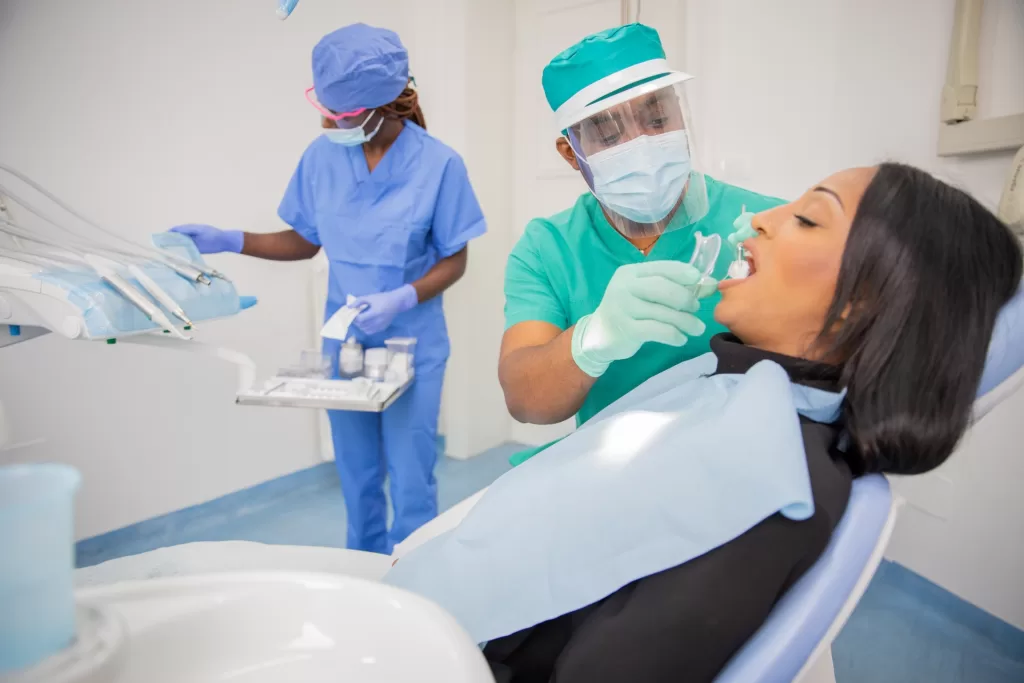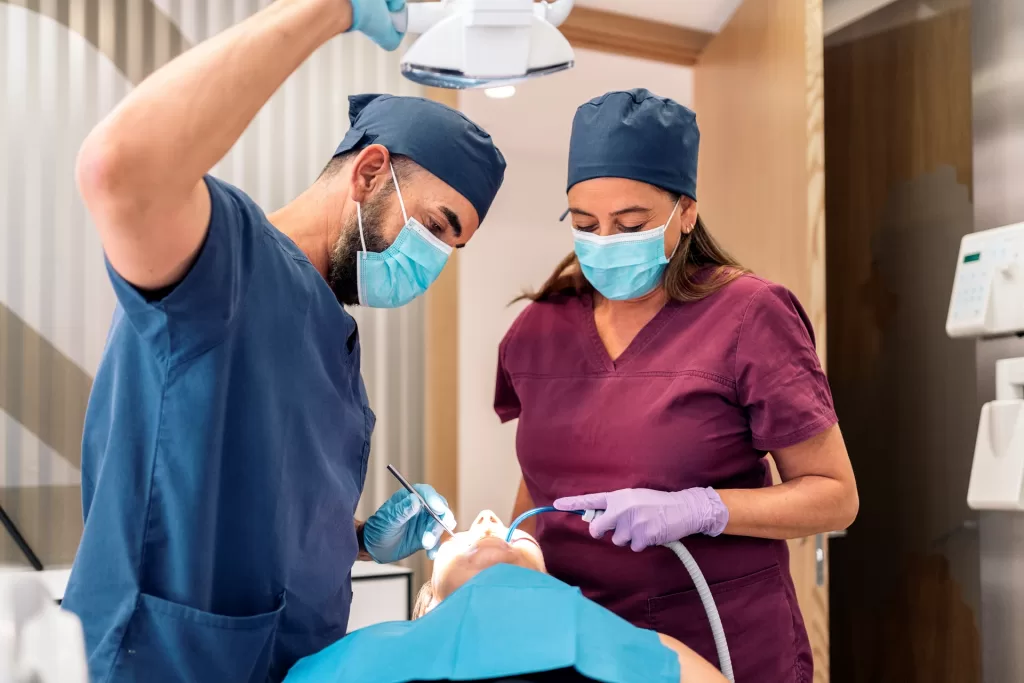We never expect to be Googling “how to prepare for emergency dental surgery” in the middle of the night—but when dental pain strikes, it can be intense and sudden. That’s exactly how many patients find themselves in an emergency chair: in pain, overwhelmed, and unsure of what to do next.
This step-by-step guide, based on expert insights and real experiences, will help you confidently navigate an emergency dental surgery situation. Whether you’re dealing with a dental emergency right now or just want to be better prepared, this guide is for you.
What Is Emergency Dental Surgery and Why Is It Important?
Emergency dental surgery refers to any surgical procedure that needs to be done immediately due to critical dental problems. Such situations usually involve severe pain, the possibility of infection, or trauma where conventional dental management fails. Knowing how to prepare for emergencies can have a significant impact on outcomes and the recovery process.
Unlike routine dental care, emergency surgery is reactive—it addresses urgent conditions that require immediate attention. These surgeries become necessary mainly during episodes of unbearable pain, swelling, or bleeding, or in cases where there is a risk of the infection spreading to another area of the body. The important point is: most hospital ERs will refer those dental emergencies to oral surgeons; thus, you should have a plan in mind.
Common Misconceptions About Emergency Dental Procedures
These are a few of those common myths that we have heard from many people, and here is why they are not true:
- Myth 1: “It’s just tooth pain—it’ll go away.”
Persistent or acute pain can indicate more serious issues, such as abscesses or nerve damage. It is not something to ignore at all. - Myth 2: “I can take antibiotics and skip surgery.”
They may relieve symptoms temporarily, but they will not cure the underlying condition requiring surgery. - Myth 3: “Emergency dental surgery is always extremely painful.”
Modern anesthesia and pain management techniques have resulted in a high rate of patient satisfaction, where many patients find the procedure tolerable.

Common Reasons for Emergency Dental Surgery
Let’s walk through a few of the most common emergency dental surgery reasons. Besides that, you will be informed about necessary preparation for cases of emergency dental surgery, which in turn will help equip you better should those things happen.
Severe Tooth Infections or Abscesses
To begin with, tooth abscesses are nothing but confined bacterial infections that come along with pus accumulation in a tooth, gum, or jawbone. It results in agonizing pain and sometimes spreads to the immediately surrounding tissues. It requires swift dental intervention for the infection to be cleared, the tooth saved, and the complications, which could be life-threatening in a condition of absence of treatment, averted.
Knocked-out or Fractured Teeth
Depending on the type of trauma, dental injuries like knocked-out or fractured teeth require immediate surgical intervention to maximize the potential of saving the tooth from being lost or causing more serious complications. Immediate treatment enhances the likelihood of successful reimplantation or repair.
Uncontrolled Bleeding or Trauma
Severe oral trauma resulting in excessive bleeding requires immediate surgical intervention to arrest the bleeding and repair the damaged tissues. Such situations are critical and must receive immediate professional attention.
Impacted Wisdom Teeth Causing Pain
Impacted wisdom teeth can cause great pain, swelling, and infection. Emergency surgical extraction of the affected teeth is necessary to relieve discomfort and prevent complications when these symptoms are extreme.
Complications from Previous Dental Work
Delayed treatment of issues like lost or dislodged dental restorations exposes the tooth’s sensitive inner layers to pain and other complications. Dealing with these matters immediately may spare the tooth from much further damage.
Signs You Might Need Emergency Dental Surgery
Recognizing the signs that indicate the need for emergency dental surgery can lead to quicker interventions and better outcomes.
- Persistent, Severe Tooth Pain: A continuous, acute toothache may indicate either deep-seated infection or nerve damage.
- Swelling and Facial Inflammation: Obvious swelling of any area in the mouth or facial region suggests an abscess or an advancing infection.
- Fever and Signs of Infection: A high temperature along with a dental symptom such as severe tooth pain, swelling, or a feeling of stiffness in the throat may suggest a dental emergency.
- Excessive Bleeding After an Injury: If uncontrolled bleeding does not stop following injury to the oral cavity, dental treatment is needed to control blood loss.
- Difficulty Chewing, Speaking, or Breathing: All these symptoms arise due to several dental conditions and must be evaluated promptly.

Immediate Steps to Take Before Emergency Dental Surgery
Taking prompt action before reaching the dental office can help contain the symptoms and prevent further complications.
- Control Pain and Swelling: Place a cold pack in the area to reduce pain and consider an over-the-counter medicine to relieve the pain.
- Rinse and Clean the Affected Area Properly: Gently rinse the mouth with warm saline or salt water to help keep the area clean and reduce bacteria.
- Save and Store a Knocked-Out Tooth Correctly: In the case of a knocked-out tooth, keep it moist by placing it in milk or a dental preservation solution, and seek immediate dental treatment.
- Avoid Certain Foods and Drinks Before Surgery: When awaiting a general anesthetic, refrain from eating or drinking for at least six to eight hours before the surgical procedure.
How to Mentally and Physically Prepare for Emergency Dental Surgery
Mentally and physically preparing for a dental emergency may help reduce stress levels surrounding it.
- Understanding the Procedure: Familiarizing yourself with the steps expected during surgery can reduce anxiety.
- Communicating Concerns with Your Dentist: An honest dialogue about fears or questions might go a long way to build trust and ensure clarity.
- Managing Dental Anxiety and Fear: Techniques such as deep breathing, meditation, or just discussing sedation with your dentist may help.
What to Expect During Emergency Dental Surgery
Understanding the realities of what happens during surgery prepares one to have realistic expectations.
- Types of Anesthesia Used: Depending on the procedure, the patient will either receive local anesthesia, sedation, or general anesthesia.
- Procedure Duration and Pain Management: The time varies according to the surgical process, but there will nearly always be some type of pain management through anesthesia and postoperative medications.
- Possible Risks and Complications: Rarely do complications arise, but this does not mean that there are no risks of developing infections, bleeding, or even reactions from the anesthesia given for the surgical process.
Essential Aftercare Tips for Faster Recovery
Proper aftercare is important to have a proper healing process and prevent complications along the way.
- Pain Management and Medication: Make sure to follow all the dentist’s instructions as to prescribed pain relievers and antibiotics.
- Foods to Eat and Avoid: Soft foods such as gelatin, pudding, or thin soups should be consumed until you’re able to reintegrate more solid items.
- Oral Hygiene Practices Post-Surgery: First of all, rinse your mouth with warm, salty water. Do not scrub too hard near the surgery site.
- Warning Signs of Complications: If you develop profuse bleeding, excruciating pain unrelieved by medication, or signs such as fever or swelling indicating infection, contact your dentist immediately.
How to Prevent Future Dental Emergencies
Preventive measures should be employed to avert all future emergencies that necessitate dental intervention. Here are some ways to minimize your chances of any future emergency dental surgery:
- Go see your dentist twice yearly, no matter how good your teeth look.
- Brush twice a day and floss once. It will make a difference.
- Wear a mouthguard for contact sports or if you grind your teeth at night.
- Don’t let small problems go. A small cavity or sensitivity can lead to surgery later.
Finding the Right Emergency Dental Surgeon Near You
Someone who could help you in times of pain, fast, and someone you can trust, that’s what you need.
- Check reviews and testimonials.
- Check for 24/7 availability or one-day appointment options.
- Ask about their experience with emergencies and what kinds of surgeries they perform.
- Be sure that insurance and payment options are explained right from the start.
Ridge Oral Surgery in New Jersey builds its reputation on an entirely professional and yet warm approach toward emergency dental care. The team treats the patients thoroughly, in a patient manner, and explains everything fully while making sure that the patients never feel rushed. This makes Ridge Oral Surgery the perfect option for anyone looking for reassurance and support during the procedure of dental surgery emergencies.
Stay Prepared & Protect Your Oral Health
In short, emergency dental surgical preparations are not simply what you are doing in anticipation of it. They are about staying calm, recognizing the signs, and listening to the right voices. Emergencies come, but they need not be faced alone or unprepared.
So if you’re facing any of the emergency dental surgery reasons we talked about, do not just wait for it. Trust your gut, call a professional, and take care of your smile; you will be glad you did.
In need of expert emergency dental care? Head over to Ridge Oral Surgery for expert care when you cannot afford to wait.
